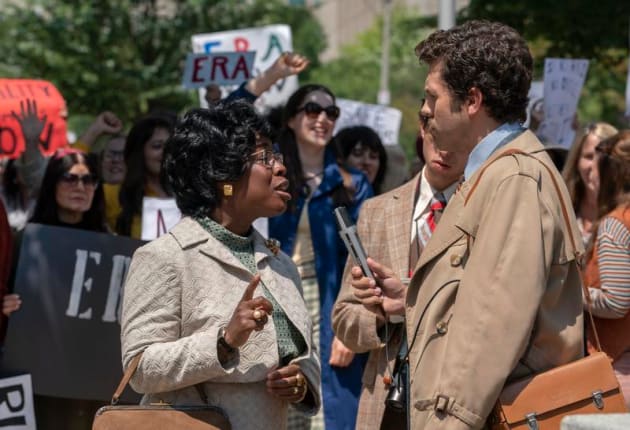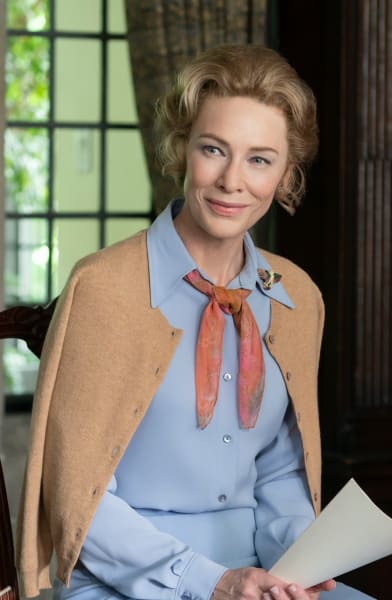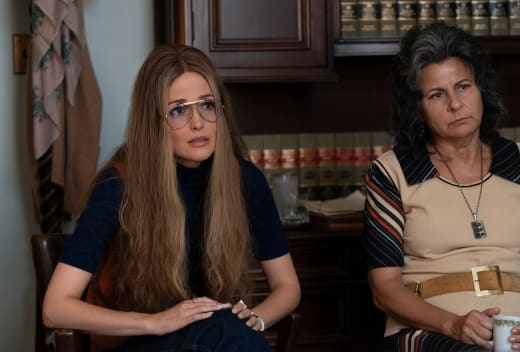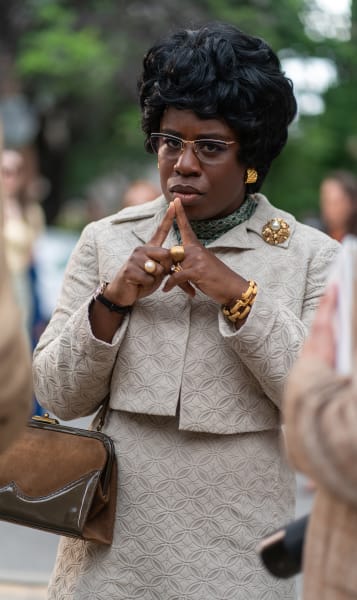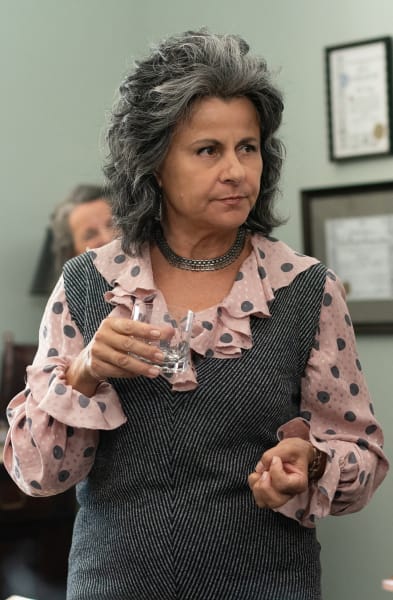On the premiere of Mrs. America, both feminist and anti-feminist women attempted to define gender equality with the rise of the Equal Rights Amendment.
The three-part series premiere set up the show’s premise, as they gave the audience a sneak peek on how everything would play out.
The miniseries could not have aired at a better time. Society has long passed second-wave feminism, and we are well into the fourth wave — but this conversation is extremely relevant now.
Even today, there is still a great debate on whether or not we obtained gender equality. Considering that politics are polarized now more than ever, Mrs. America gave the audience a taste of a similar conflict during a different time.
The Equal Rights Amendment redefined gender equality, but it also prompted the rise of conservative voices and their worry that this amendment would be the beginning of the end of American morals.
Phyllis Schlafly was one of those conservative voices. On Season 1 Episode 1, Phyllis was portrayed as a potential Republican second-wave feminist — a surprise, if you knew who she was before watching Mrs. America.
Because Phyllis Schlafly is anything but a feminist — she was a prominent conservative figure credited with the Stop ERA movement.
So it was quite the shock when Mrs. America decided to imply that she could have been a conservative second-wave feminist. Still, in hindsight, that decision made sense.
Even though Phyllis was anti-feminist, by initially suggesting she could have been the opposite, Mrs. America expressed that this is how viewers should watch the show.
Now we know how we should think critically of storylines and character motivations going forward. We know that the deeper meaning of this show lies in a feminist analysis, and the specifics will unravel in future episodes.
By the end of the first episode, Phyllis has staunchly declared her disdain for the Equal Rights Amendment and the women’s liberation movement.
She made it clear that she did not believe in second-wave feminism, and that she did not think that women were unequal to men.
On the other hand, feminist icon Gloria Steinem would have said the complete opposite. Men not only oppressed women but they encouraged violence against women because of their lack of reproductive rights.
She could not tolerate America’s control over women’s bodies. She was desperate for options that included safe and legal abortions.
On Season 1 Episode 2, Gloria expressed frustration on the lack of action for abortion rights.
She presented an underlying theme of the Equal Rights Amendment — the demand for change. Not just any change sometime in the future, but radical change immediately.
How long are we supposed to wait? How many more women are going to die from botched abortions while we wait for men to feel comfortable with us having control over our own bodies? How many women are going to be forced to give birth to babies they can’t afford to feed while we wait for housewives who have no idea what it’s like to have to work to survive to feel comfortable with women having power? How long do we give people to adapt to change? Am I the only one who’s so fucking tired of waiting?
Gloria
Gloria is a feminist icon for plenty of good reasons. Season 1 Episode 2 showed just how different she goes about her activism — but she got the job done, even if the results were not in her favor.
It was why she was so well-liked among members of the women’s liberation movement, even if the press tried to force tension between Betty and Gloria.
They may have gone about things differently, but they ultimately had the same common goals. They put aside their differences and got along just fine, despite others who tried tearing them apart.
There is strength in numbers, and Gloria and Betty recognized that.
You got into this race to get us out of the war. This is our Vietnam.
Gloria
Phyllis was a well-known critic of second-wave feminism. However, today, criticism of feminism’s second wave usually depicts this period as anything but intersectional.
Mrs. America captured that when Shirley Chisholm ran for the Democratic Party’s presidential nomination, making her the first woman to do so, and the first black candidate for any major political party.
Shirley was determined to “shake things up” at the Democratic National Convention in 1972. But she had a difficult time doing so when neither the Black Caucus nor the Women’s Caucus stood behind her.
Shirley: The caucus wants me to drop out, release my delegates to McGovern.
Conrad: Which one?
Shirley: Take your pick. They both have been talking to high heaven ever since way back. A female president by ’76, a black president; but when push comes to shove, it’s like Pops always said, one hand won’t clap, and they can’t see it!
Her feminist peers such as Bella Abzug, Gloria Steinem, and Betty Friedan supported her candidacy, but as a symbolic gesture. Bella especially did not believe Shirley could defeat President Nixon.
Bella also thought that Senator McGovern was the best choice for the women’s movement.
It was ironic, considering that Shirley would have understood and empathized with women more than George McGovern ever could.
Unfortunately, Shirley had to release her delegates. The other candidates dropped out, and by that point, it would not look good if she insisted on persisting rather than uniting with McGovern.
But Season 1 Episode 3 did not end without the portrayal of criticism for second-wave feminism from both ends of the aisle.
Why am I the only one at this convention who thinks a black woman being president is worth the run?!
Shirley
The core of Mrs. America is fundamentally about the subjectivity of morality regarding the Equal Rights Amendment.
If you asked Phyllis, she would have said that Gloria Steinem, Shirley Chisholm, and Betty Friedan did not portray American values.
Shirley supported Angela Davis, a member of the communist party — something Phyllis considered to be anything but American.
Gloria Steinem focused on abortion rights, which Phyllis considered to be murder.
And after reading The Feminine Mystique, Phyllis would have said that bashing marriage and the traditional family was about as unAmerican as it got.
But if you asked Gloria, Shirley, or Betty about American values, they would have given a different point of view.
They would say a woman’s freedom to choose is American.
They would say fighting for racial and gender equality is American. Women relishing in the same liberty that men have is American.
Mrs. America focused on the ratification of the Equal Rights Amendment, but the show is also about the fight for American values. The title of the miniseries could not be more fitting.
Now it is your turn, Fanatics! What did you think of the premiere of Mrs. America? Was it everything you hoped it would be?
Did they exceed your expectations, or did they not reach high enough? What do you think about how they are presenting the issue of the Equal Rights Amendment? What are you hoping for in future episodes?
Let us know what you think in the comments below!
You can watch Mrs. America online right here at TV Fanatic!
Sarah Novack is a staff writer for TV Fanatic. Follow her on Twitter.
